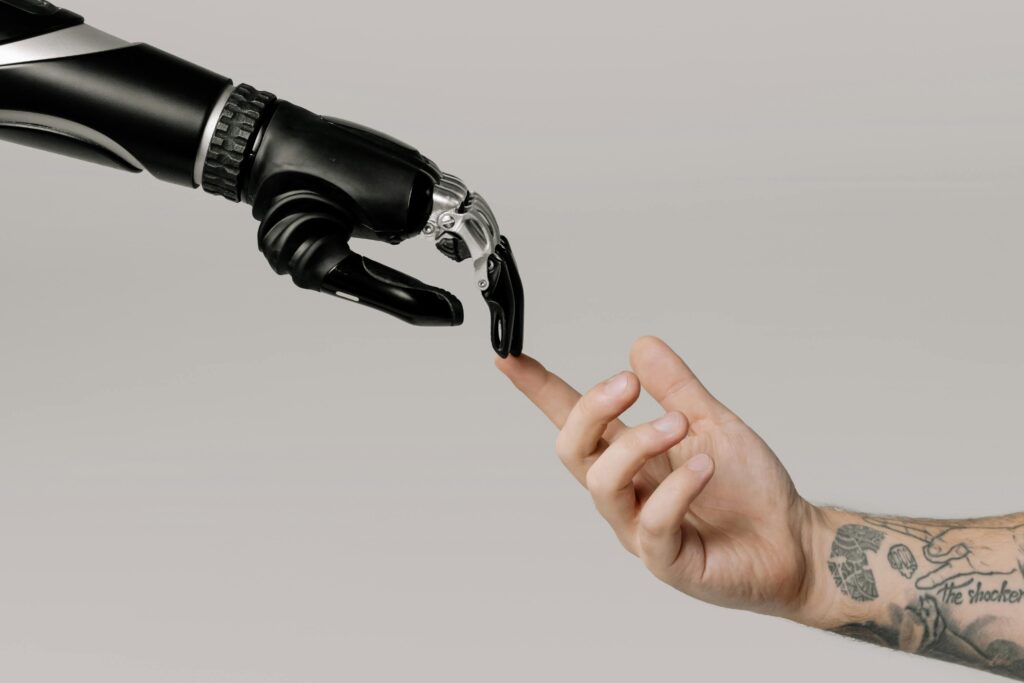Artificial Intelligence (AI) is no longer the stuff of science fiction; it’s a transformative force redefining industries, economies, and daily life. From voice assistants like Siri and Alexa to predictive algorithms powering Netflix and Spotify, AI is everywhere. This revolutionary technology promises unprecedented convenience, efficiency, and innovation, making it one of the most impactful advancements of the 21st century.
In this article, we’ll explore how AI is reshaping our world, its key applications, and the challenges we must address to harness its full potential responsibly.
What Is Artificial Intelligence?
Artificial Intelligence refers to computer systems capable of performing tasks that typically require human intelligence. These tasks include learning, reasoning, problem-solving, understanding language, and even recognizing patterns. AI systems use vast amounts of data and advanced algorithms to “learn” and improve over time, mimicking cognitive processes.
There are two main types of AI:
- Narrow AI: Designed for specific tasks, such as language translation or image recognition. Examples include chatbots and facial recognition software.
- General AI: A theoretical concept where machines possess the ability to perform any intellectual task humans can do, often portrayed in movies like Ex Machina or Her.
While we’re still far from achieving General AI, Narrow AI is already revolutionizing various sectors.
Key Applications of AI
Healthcare
AI is transforming healthcare through predictive diagnostics, personalized treatment plans, and efficient drug development. Tools like IBM Watson Health analyze vast medical data to provide faster, more accurate diagnoses. AI-powered wearables, such as fitness trackers, monitor vital signs in real time, helping individuals maintain their health proactively.Education
Adaptive learning platforms, such as Khan Academy, use AI to tailor educational content to individual learners. Virtual tutors and AI-driven assessments help students grasp concepts at their own pace, bridging gaps in traditional education systems.Business and E-commerce
AI enhances customer experiences by personalizing recommendations and automating customer support through chatbots. Predictive analytics enable businesses to forecast market trends, optimize inventory, and boost operational efficiency.Transportation
Self-driving cars, powered by AI, are set to revolutionize the automotive industry. Companies like Tesla and Waymo are leading the charge, promising safer roads and reduced traffic congestion. AI also optimizes logistics, ensuring faster delivery times for goods and services.Entertainment
AI algorithms curate personalized playlists on Spotify, recommend shows on Netflix, and even create content. In gaming, AI generates intelligent non-playable characters (NPCs), enhancing player experiences.Agriculture
AI-driven solutions like precision farming help monitor crop health, optimize irrigation, and reduce pesticide use. Drones equipped with AI cameras provide real-time data to improve yields and sustainability.
The Impact of AI on Employment
One of the most debated topics in the AI revolution is its impact on jobs. While AI automates repetitive tasks, leading to job displacement in some sectors, it also creates new opportunities. For instance:
- Automation: Factory and administrative roles are becoming increasingly automated, requiring workers to adapt to new roles.
- Innovation: AI is driving demand for professionals in machine learning, data science, and AI ethics, creating high-paying tech jobs.
- Augmentation: Instead of replacing humans, AI often works alongside them, boosting productivity and decision-making.
Read: Your Guide to the Future of Technology
Challenges and Ethical Considerations
As AI advances, it raises critical challenges that need addressing:
Data Privacy
AI relies on massive datasets, often containing sensitive personal information. Ensuring data security and ethical usage is paramount.Bias and Fairness
AI systems can inadvertently perpetuate biases present in their training data. Efforts must be made to create diverse datasets and unbiased algorithms.Job Displacement
While AI creates jobs, it also displaces others, particularly in low-skill industries. Governments and organizations must focus on upskilling and reskilling workers.Regulation
AI’s rapid development outpaces regulation, leading to concerns about misuse, such as deepfakes or autonomous weaponry. Clear guidelines are needed to ensure AI is used responsibly.
The Future of AI
The potential of AI is limitless. From curing diseases to solving climate change, it could be the key to humanity’s most pressing challenges. Innovations like quantum computing and neural networks promise even greater leaps in AI capabilities.
However, collaboration between governments, businesses, and technologists is essential to ensure AI benefits everyone. Investing in AI literacy, ethical development, and equitable access will be crucial as we move forward.
Conclusion
The AI revolution is reshaping our world at an unprecedented pace. By streamlining processes, enhancing decision-making, and unlocking new possibilities, it has become a cornerstone of modern innovation. While challenges exist, the opportunities far outweigh the risks when AI is developed and deployed responsibly.
As we stand on the cusp of this technological revolution, embracing AI with an informed and ethical approach will determine its true impact on society. The future is here—are we ready to harness its power?
By leveraging the transformative potential of AI while addressing its challenges, we can ensure a smarter, more connected, and equitable world.

